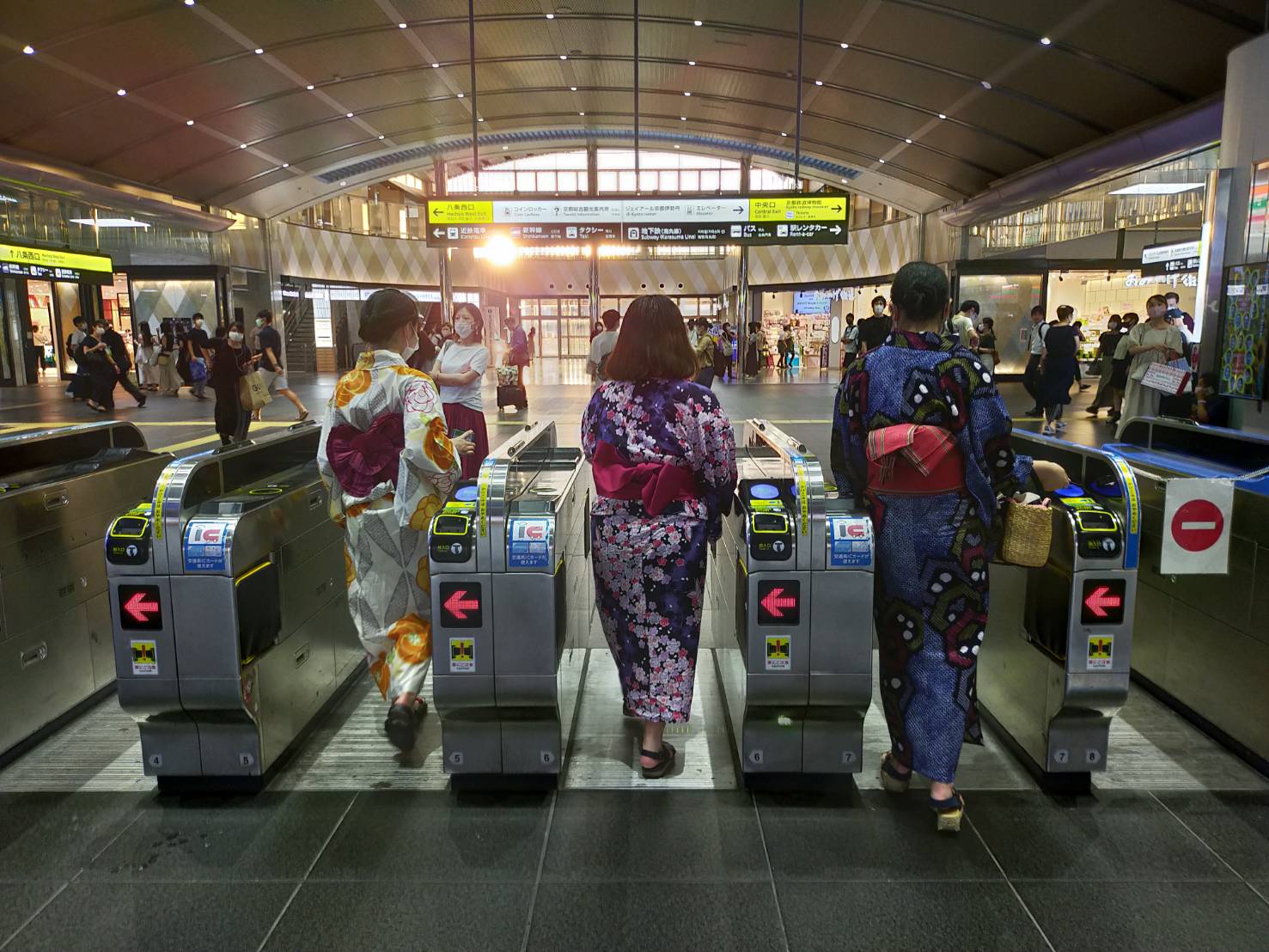by Irina Ritsch, PhD in Electron Paramagnetic Resonance, 17 December 2020
2020 is certainly a year that will be remembered by the global community. And while times have been grim and brought many challenges, I hope with this post I can restore a bit of positivity. Incidentally, 2020 was going to be special for me, even before it became so for everybody. I had just graduated with a doctoral degree in Physical Chemistry in late 2019, and was selected as a candidate for the Japan Society for the Promotion of Science (JSPS) short term strategic partnership for academic exchange with Japan. My destination was the group of Professor Masahiro Shirakawa at Kyoto University, and I was scheduled to begin in March, which turned out to be just when the first wave of the Covid-19 pandemic hit Europe.
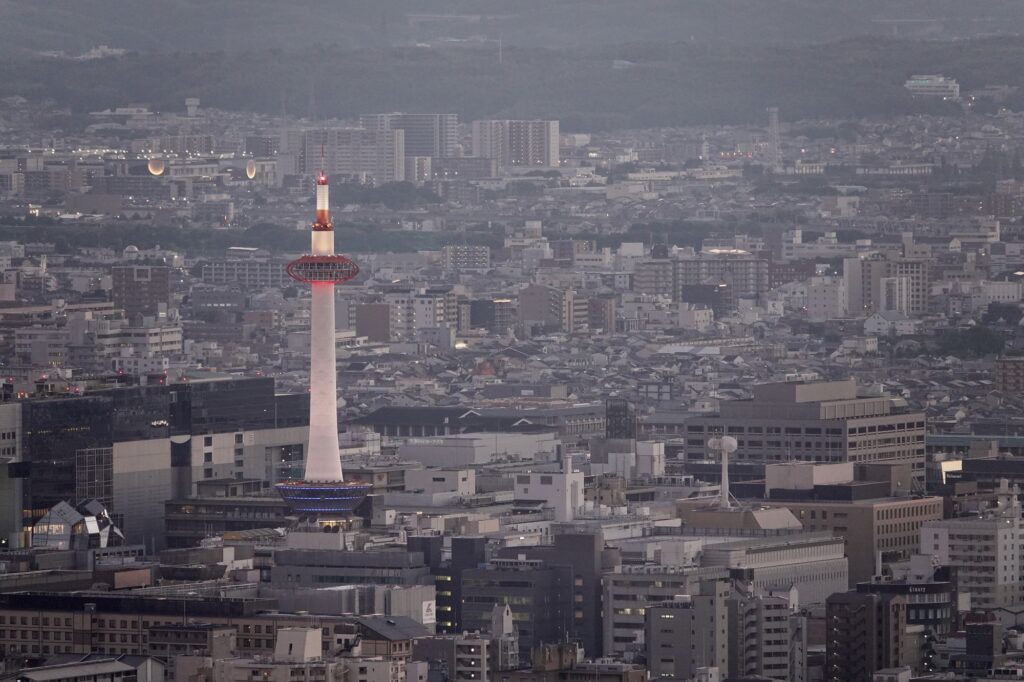
Already arriving at Osaka International Airport as one of the few foreign nationals, it was clear that this was not entirely going to be your regular Japan experience. Face masks, hand disinfectant, and social distancing measures were immediately the norm of the day. I cannot stress enough how incredibly thankful I am for the warm welcome I nonetheless received by the fantastic researchers and staff at Kyoto University! In their capable hands, language and cultural barriers quickly began to melt away.
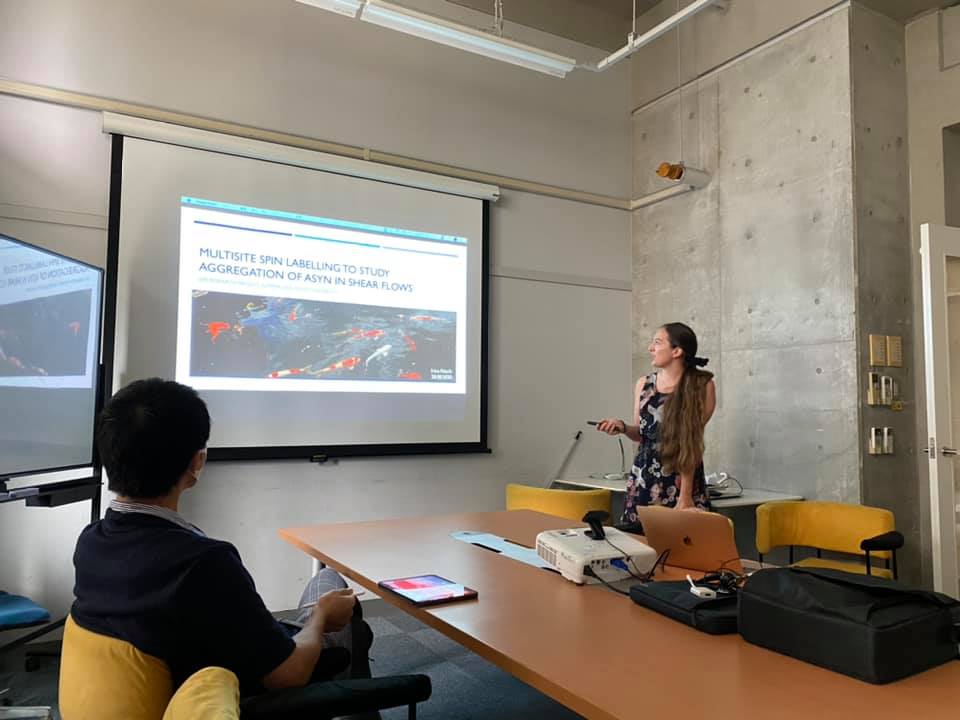
Research: same, same… 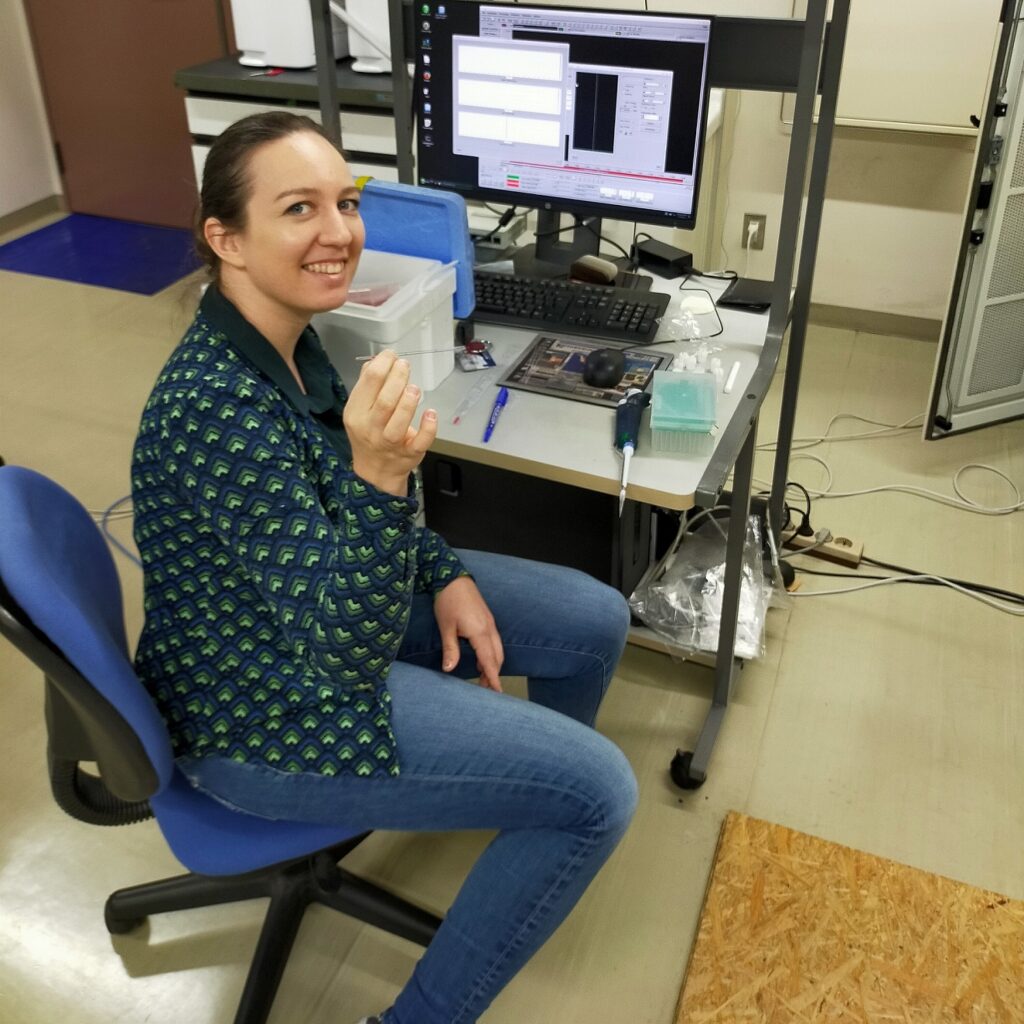
…but different! 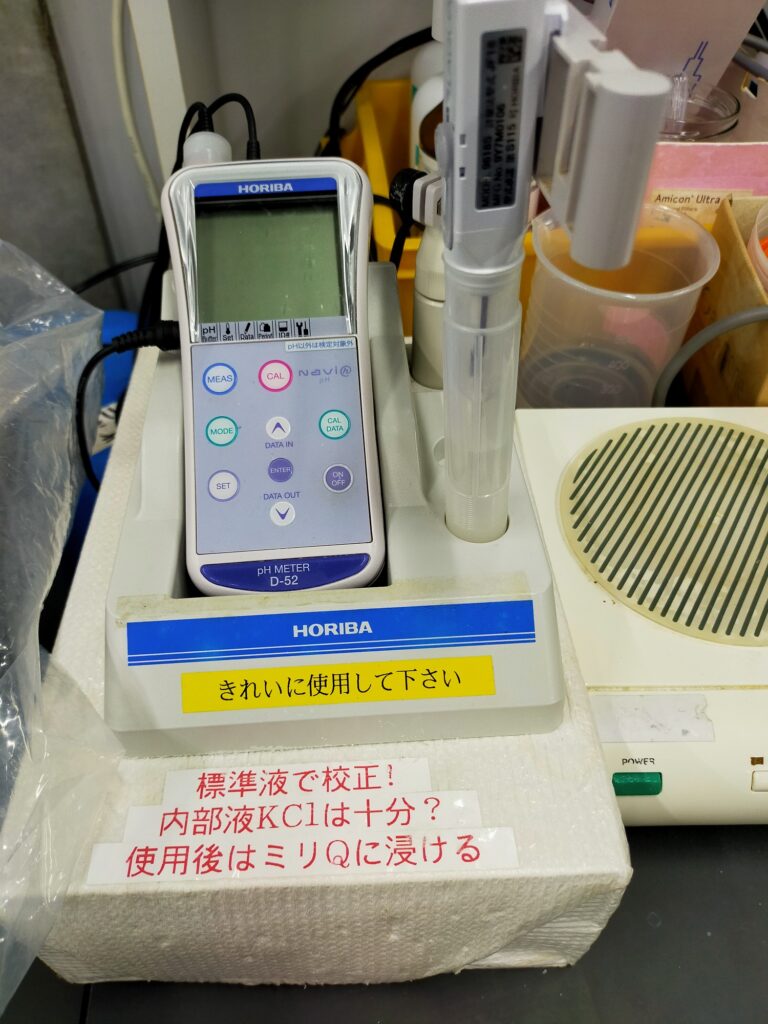
Drying out of pH electrodes is clearly a problem beyond national borders. 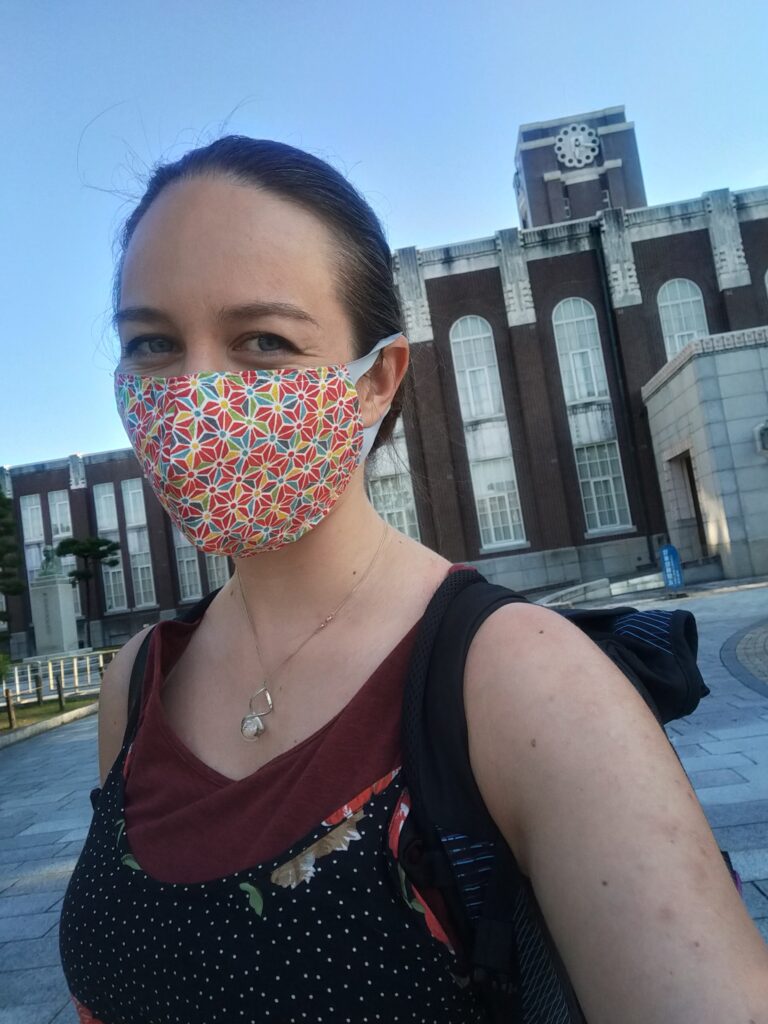
In front of the unusually calm main building of ‘Kyodai’ (Kyoto university). 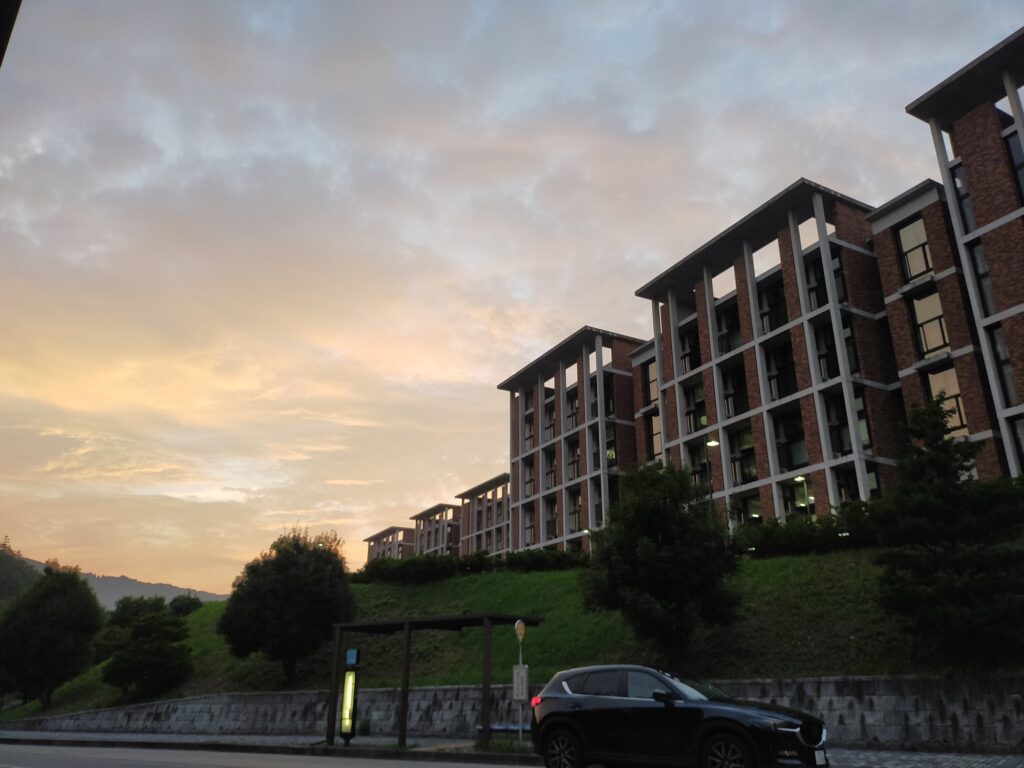
The Katsura campus (engineering) is located on a hill on the edge of Kyoto city. It’s like I never left Hönggerberg.
I had expected no less, but it was fascinating to experience first-hand that after flying around the world, and entering a completely different society and culture, I found myself in a scientific community of people with a familiar attitude and interests. Except that all the software, labels of chemical bottles and instruction manuals were entirely in Japanese! Despite some previous warnings about the potentially strict and hierarchical Japanese culture and work ethics, I was fortunate to work in a supportive and collaborative environment to develop my research at Kyoto University. Eventually, due to pandemic countermeasures, laboratory work was reduced, but again, some good came with the bad. The resulting boost in online conferencing was indeed a valuable extension for global co-working, and continues to be so after my return.
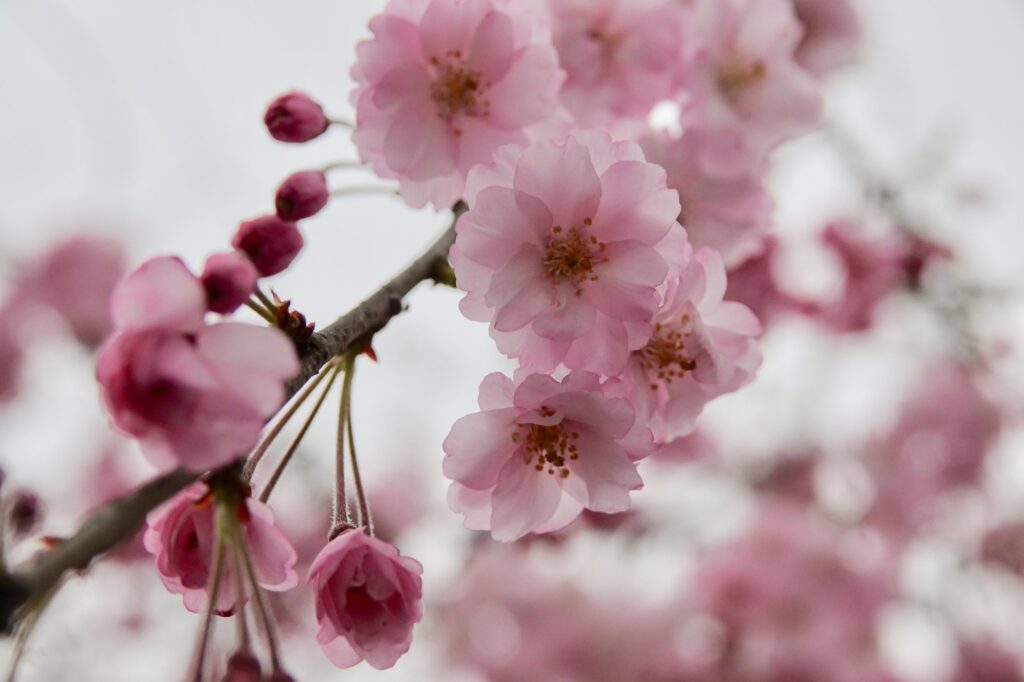
Once you’ve seen it, you kind of get the hype about Sakura season! 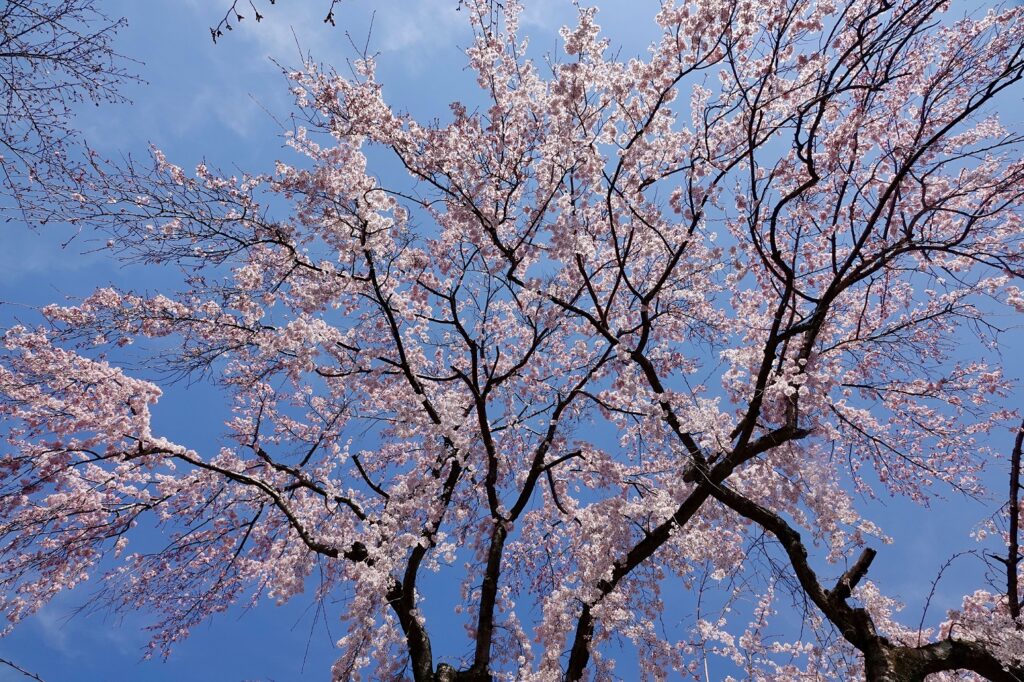
Mesmerizing!
This post is now already as crammed as my wonderfully compact Kyoto apartment, so let me reach my personal conclusion from the experience of Kyoto in 2020: looking out for one another, the way that my host group did for me when I arrived in a completely foreign environment in the middle of a global crisis, was a powerful example of openness and mutual goodwill to build strong trust, the basis of collaboration in modern science. If we manage as a scientific community to encourage each other to keep up and appreciate this mindfulness in all aspects of science, we will be able to extend and maintain a sustainable, inclusive and healthy global scientific community. Scientific excellence will be the natural consequence.
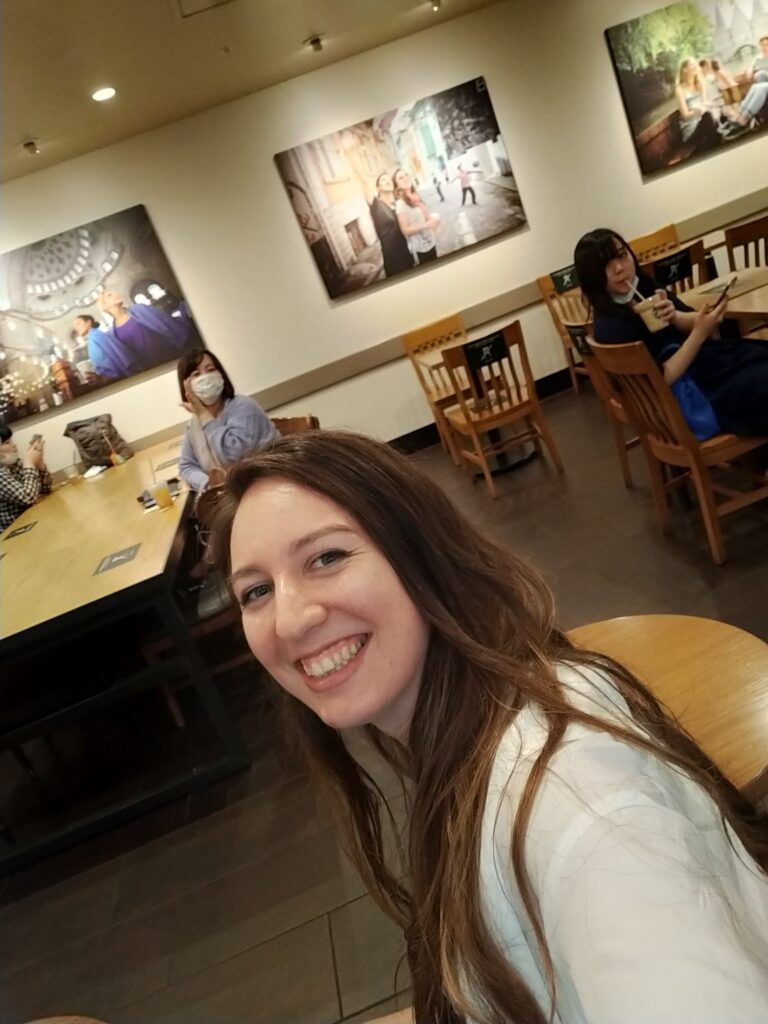
Social distancing coffee time! 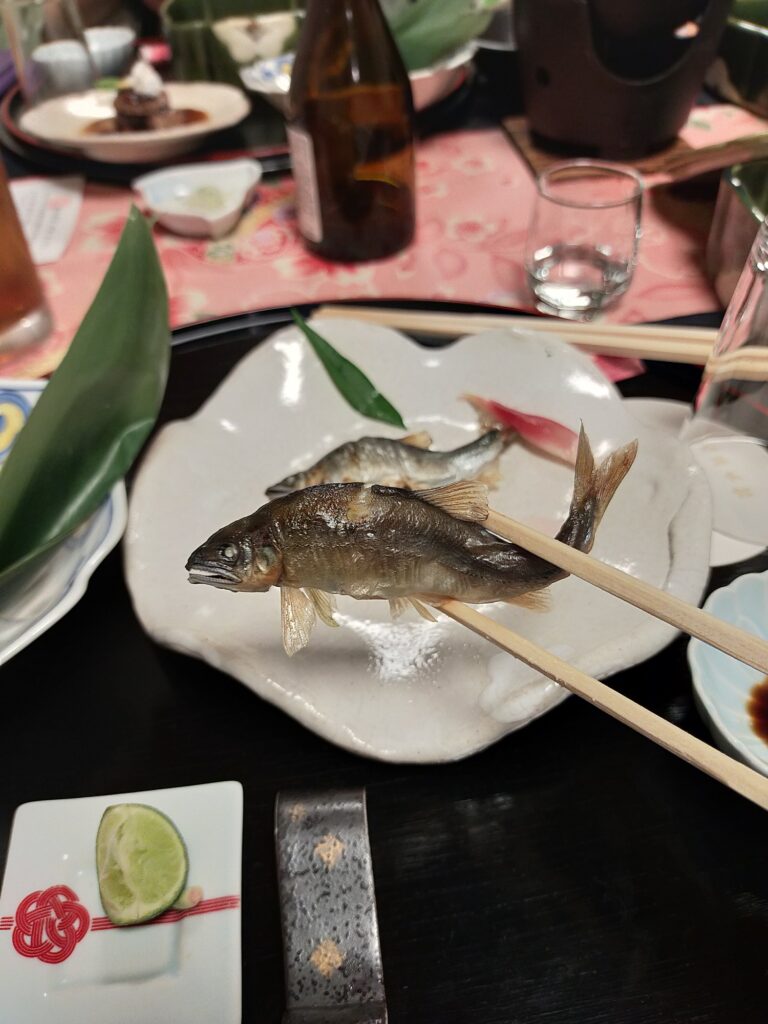
Not a day passed without discovering new food! 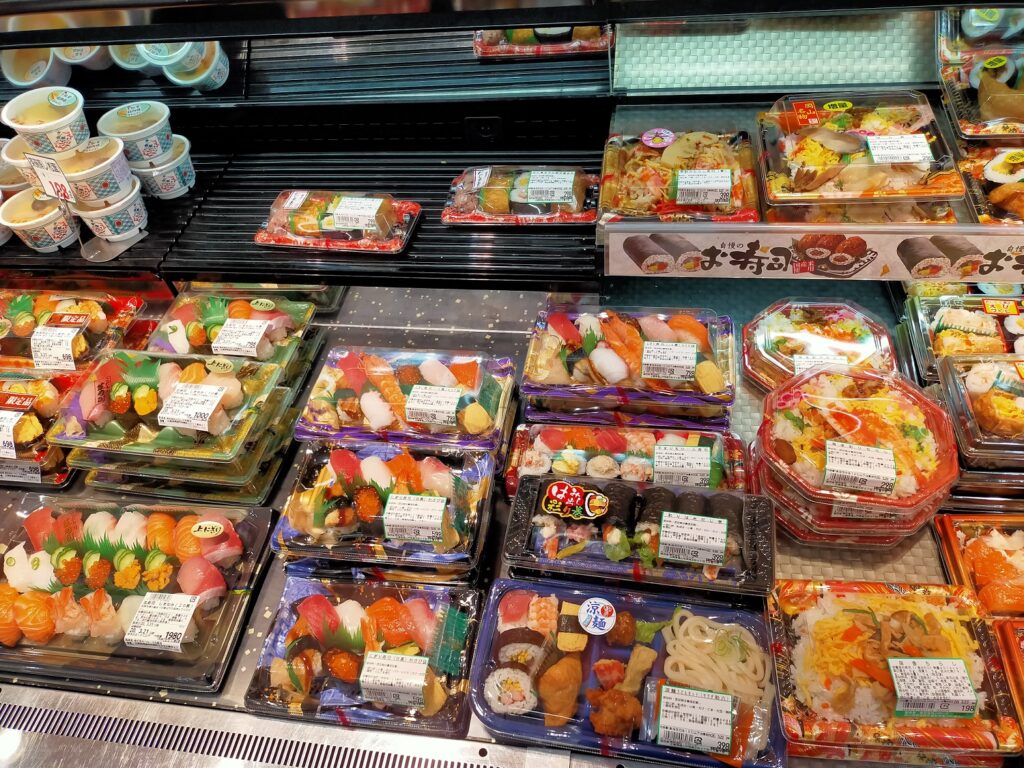
Bento (boxed lunch) section 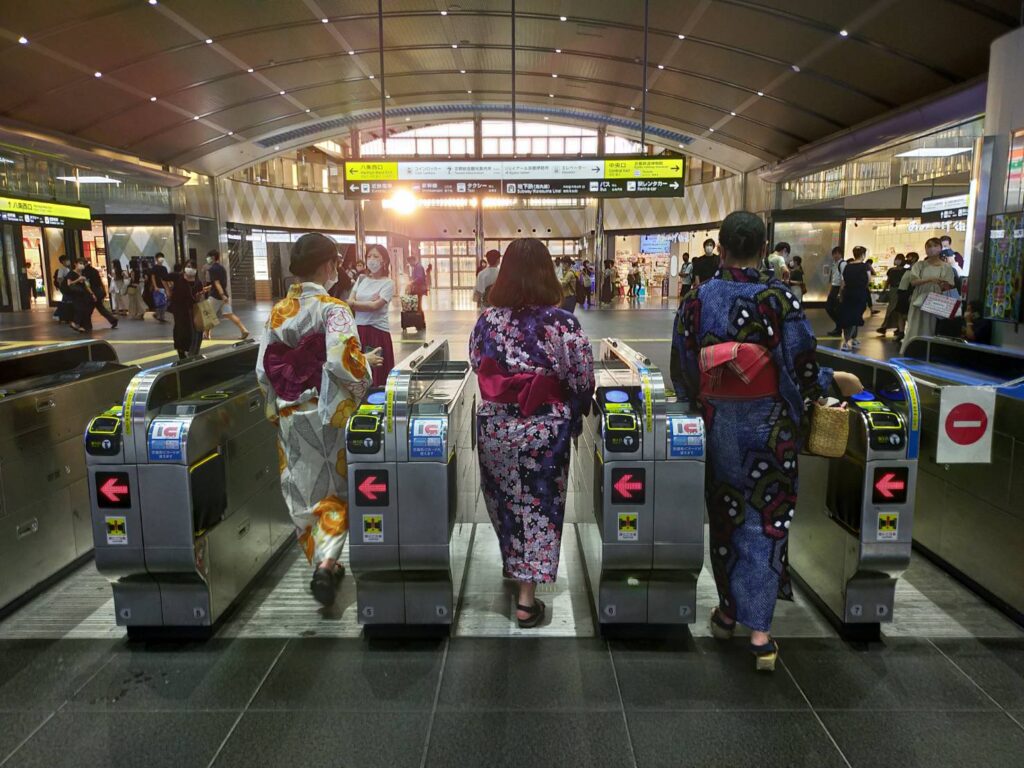
Japan is a captivating mix of technology and tradition 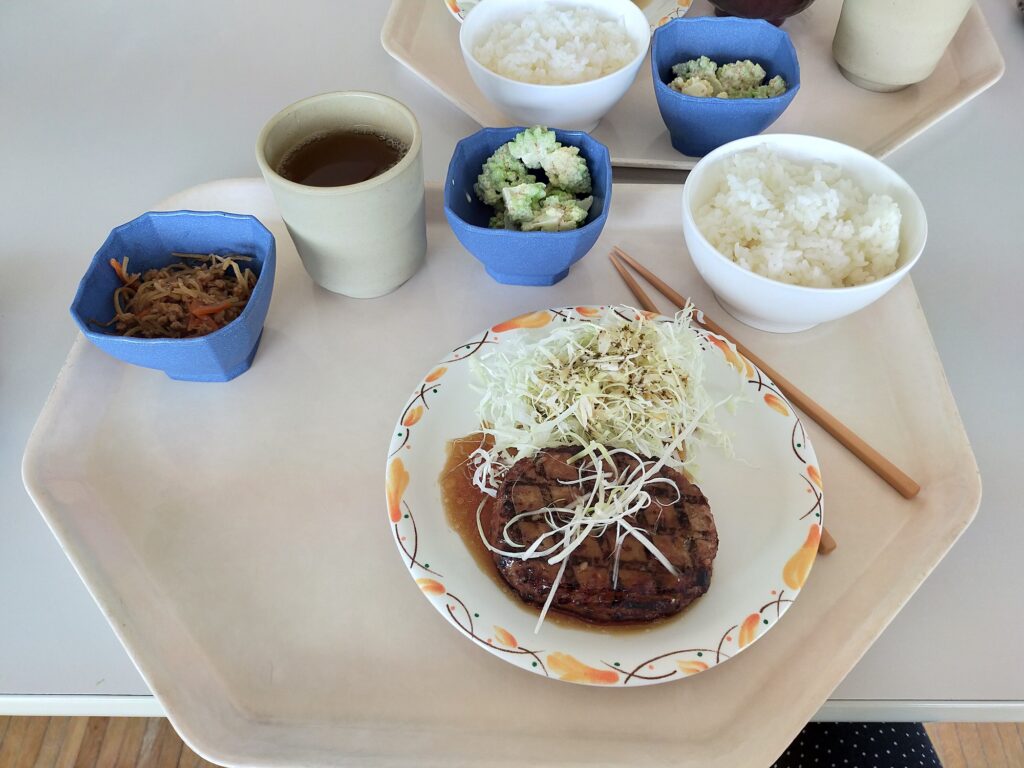
Cafeteria food (photo credit: Irina Ritsch/ETH Zurich)
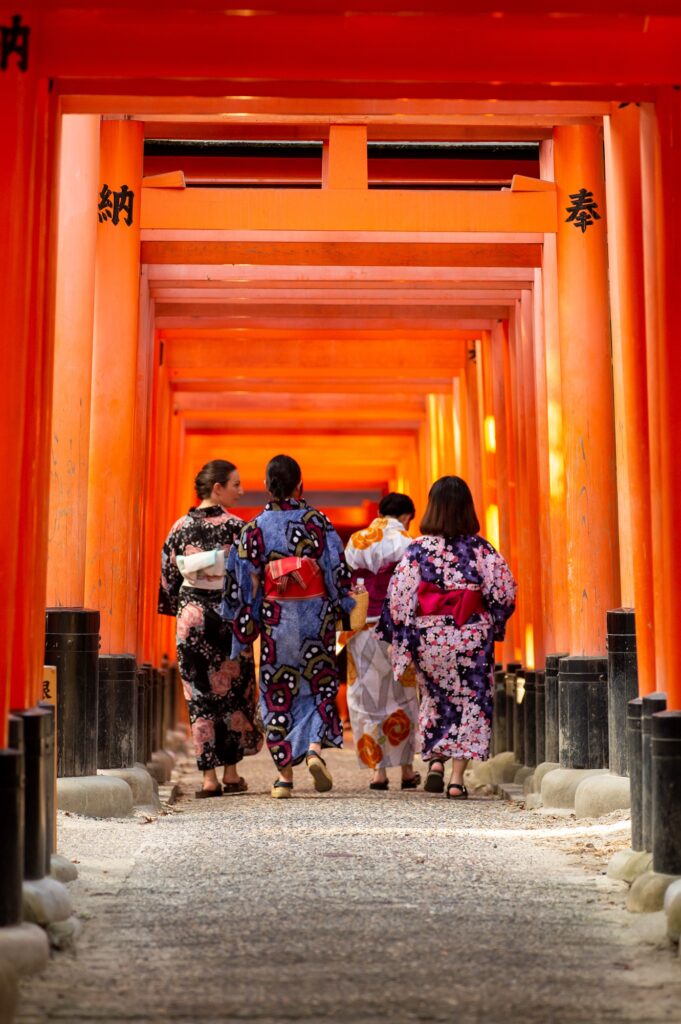
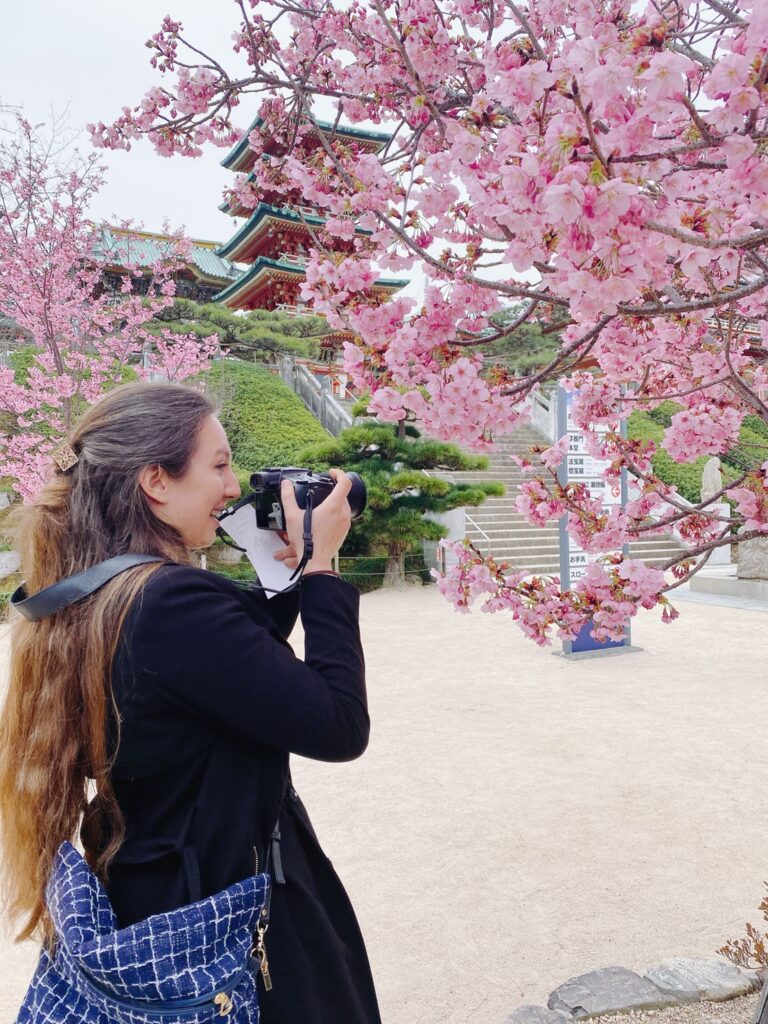
About the author
Irina Ritsch studied Interdisciplinary Science at ETH Zurich, where she continued her education with a PhD in Electron Paramagnetic Resonance in the group of Prof. Jeschke. Her focus is on how site-directed spin labelling and pulsed dipolar spectroscopy can be used to (un-) structurally characterise highly dynamic protein domains. In her free time she enjoys ballroom dancing and photography.
Links
http://www.moleng.kyoto-u.ac.jp/~moleng_01/
https://epr.ethz.ch/
Personal website/blog:
https://irinaritsch.com/

